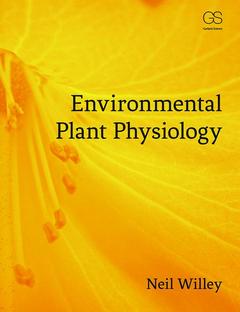Environmental Plant Physiology
Auteur : Willey Neil

Environmental Plant Physiology focuses on the physiology of plant-environment interactions, revealing plants as the key terrestrial intersection of the biosphere, atmosphere, hydrosphere and geosphere. It provides a contemporary understanding of the topic by focusing on some of humankind's fundamental biological, agricultural and environmental challenges. Its chapters identify thirteen key environmental variables, grouping them into resources, stressors and pollutants, and leading the reader through how they challenge plants and how plants respond at molecular, physiological, whole plant and ecological levels. The importance of taking account of spatial and temporal dimensions of environmental change in order to understand plant function is emphasised. The book uses a mixture of ecological, environmental and agricultural examples throughout in order to provide a holistic view of the topic suitable for a contemporary student audience. Each chapter uses a novel stress response hierarchy to integrate plant responses across spatial and temporal scales in an easily digestible framework.
1. Contexts, Perspectives, and Principles
2. Light
3. Carbon Dioxide
4. Water
5. Nitrogen
6. Phosphorus
7. Essential and Beneficial Elements
8. Temperature
9. Salinity
10. Soil pH
11. Flooding
12. Inorganic Toxins
13. Organic Toxins
14. Air Pollutants
15. Synopsis and Outlook
Date de parution : 12-2015
21.9x27.6 cm
Thèmes d’Environmental Plant Physiology :
Mots-clés :
Chloroplast Movement; Environmental Plant Physiology; Plant Environment Interactions; Main Group; Main Group Elements; TCA Cycle; Unmanaged Ecosystems; Casparian Strip; Mate Transporter; Organic Toxins; Proteoid Roots; Inorganic Toxins; Cam Plant; BS Cell; Gaba Shunt; Lysigenous Aerenchyma; Calvin Benson Cycle; Extra-radical Hyphae; PSII Complex; SOS Pathway; Salt Glands; Organic Xenobiotics; ATP Molecule; CBF Expression; Metal Tolerant Plants; Aral Sea



